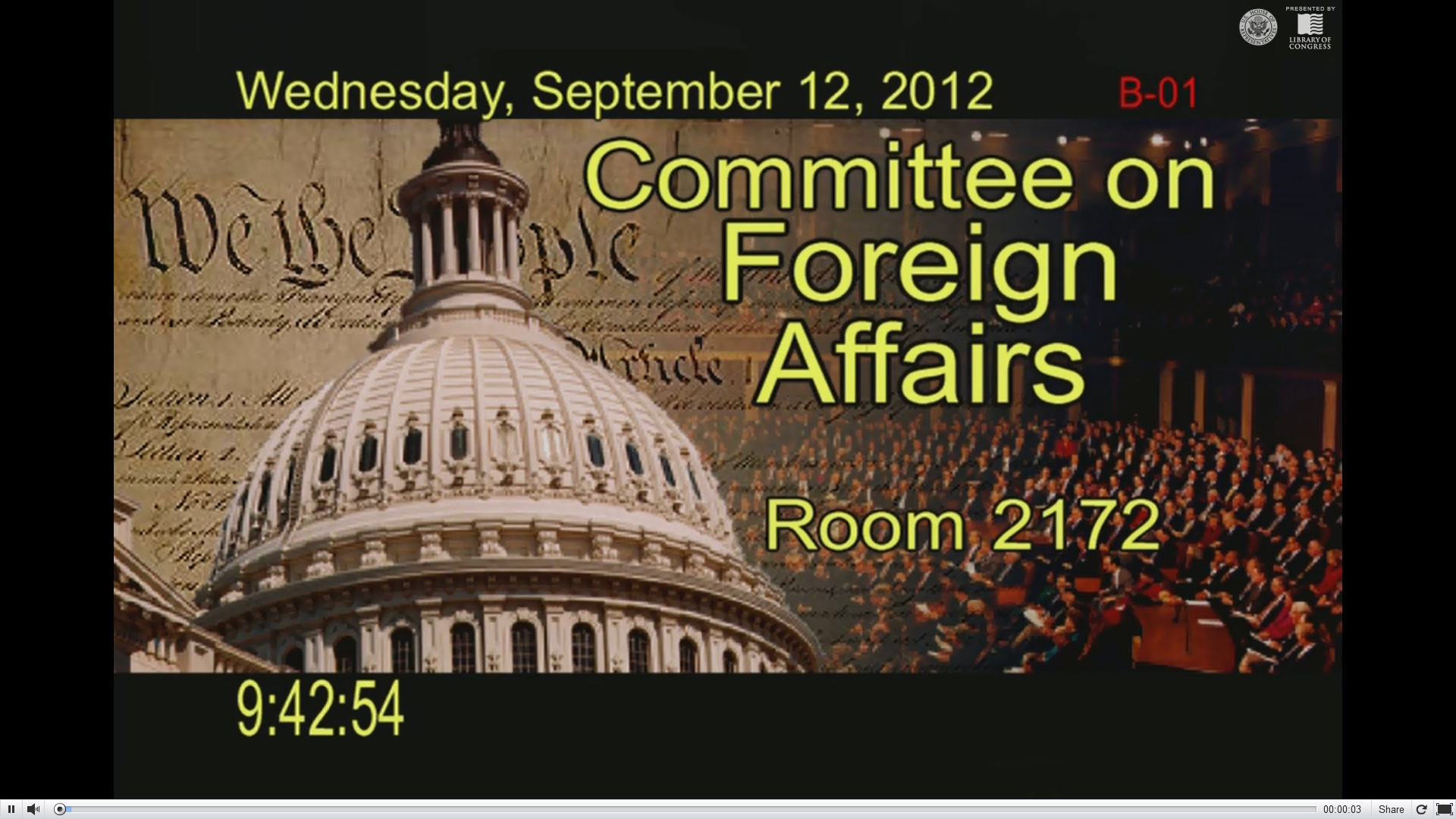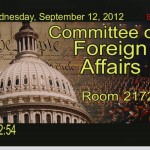
House Foreign Affairs Committee Hearing on the South China Sea
 On September 12, The House Foreign Affairs Committee met to discuss increased Chinese aggression in the South China Sea (SCS) and policy options for the United States. Witnesses were Dr. Toshi Yoshihara, Professor and John A. Van Beuren Chair of Asia-Pacific Studies at the U.S. Naval War College; Ms. Bonnie Glaser, Senior Fellow and Freeman Chair in China Studies at the Center for Strategic and International Studies; Dr. Richard Cronin, Director of the Southeast Asia Program at the Stimson Center; and Mr. Peter Brookes, Senior Fellow at the Heritage Foundation. From the outset experts agreed that the U.S. cannot afford to be passive while China consistently asserts its dominance in the SCS region.
On September 12, The House Foreign Affairs Committee met to discuss increased Chinese aggression in the South China Sea (SCS) and policy options for the United States. Witnesses were Dr. Toshi Yoshihara, Professor and John A. Van Beuren Chair of Asia-Pacific Studies at the U.S. Naval War College; Ms. Bonnie Glaser, Senior Fellow and Freeman Chair in China Studies at the Center for Strategic and International Studies; Dr. Richard Cronin, Director of the Southeast Asia Program at the Stimson Center; and Mr. Peter Brookes, Senior Fellow at the Heritage Foundation. From the outset experts agreed that the U.S. cannot afford to be passive while China consistently asserts its dominance in the SCS region.
The main point of Dr. Yoshihara’s argument is that the China we see today is a shadow of a stronger and more capable China to come. He recommended that the U.S. help local states help themselves. Furthermore, he suggested that the U.S. plan for rapid deployment in the region and the U.S. Navy revisit prevailing assumptions on sea control. In his statement he pointed out that the Chinese can afford a drawn out battle over the SCS and that might in fact be part of their strategy, to win by exhausting the other territorial claimants.
Ms. Glaser focused her statement on how China is unlike other stakeholders in this conflict and offered recommendations for U.S. response. She said that China rejects international norms and laws, exercises economic pressure and avoids a rules-based resolution mechanism. These all differentiate it from others involved in the territorial disputes. Furthermore, she stressed that the U.S. should urge all claimants to frame their claims in line with the United Nations Convention on the Law of the Sea (UNCLOS).
Dr. Cronin concentrated on providing background, with some analysis and policy recommendation. He presented two futures where the dispute is never resolved; one in which the region is extremely tense, and another where nations collaborate on resource development. He recommended that the U.S. continue supporting ASEAN in developing a Code of Conduct and for the U.S. to ratify UNCLOS.
Mr. Brookes paid most attention to the reasons behind China’s actions and consequences if unchallenged. Domestic demands, growing military power and perception of American decline are some of the reasons listed for China’s assertiveness. He also stated that the Chinese political transition this year won’t bring any change concerning this matter.
Many of the experts said that progress could be made if states focused on joint resource development projects in the contested water instead of territorial claims. However, this is unlikely.
China would prefer to unilaterally move to claim resource rights for itself. As the dominant regional power, China believes other nations will acquiesce.
When you look at the significance of the SCS for trade, energy resources and other national interests it is understandable why China would try so hard to gain dominance. The U.S. is becoming increasingly involved in the dispute. Looking forward, U.S. policymakers need to consider how far we are willing to go to counteract Chinese hegemony, and what will we do if the dispute becomes militarized?






[…] House Foreign Affairs Committee Hearing on the South China Sea […]
[…] John A. Van Beuren Chair of Asia-Pacific Studies at the US Naval War College, who testified in the House on September 12 on this same issue. He further stated that the U.S. seeks neither regional hegemony nor to contain […]